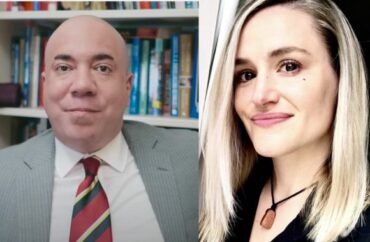
‘Conservatism was associated with more self-censorship’
Psychology professors across the U.S. are self-censoring their findings surrounding social “taboos,” a recent academic paper says.
Some professors are also worried about job security if they publish unpopular results.
An article titled “Taboos and Self-Censorship Among U.S. Psychology Professors” discussed the association between scholars’ beliefs in taboo empirical claims and the censorship of these findings in their work in order to avoid social or workplace punishment.
The paper began by with 41 “qualitative interviews” to create a list of top “taboos.” These mainly focused on race, sex differences, and transgenderism. For example, one was “Biological sex is binary for the vast majority of people.”
“Racial biases are not the most important drivers of higher crime rates among Black Americans relative to White Americans,” was another example.
“Conservatism was associated with more self-censorship for all conclusions,” the study concluded.
Professor Cory Clark, who oversaw the research behind the paper, provided further comments to The College Fix.
“To me, these patterns suggest that a majority of psychology professors are intimidated by a vocal minority of their peers,” the University of Pennsylvania visiting scholar told The Fix via email. “I do not know whether professors are overestimating the size of the vocal minority, or whether the vocal minority is just that intimidating.”
“But in any case, this small group seems to have disproportionate control over the academic climate and which topics and conclusions are open for discussion,” Clark (pictured, right) said.
A Kentucky State University professor who co-authored the paper said self-censorship decreases the reliability of studies.
“When you look at what’s coming out in scientific media or high-brow intellectual media, very often, you’re not seeing the things people actually believe,” Professor Wilfred Reilly told The Fix on a phone interview. “Like the statement of transgenderism from the American Psychological Association, was in fact from the takeover of one relatively small panel by a group of non-quantitative psychologists that I think identify as transgender activists.”
MORE: Penn professor under fire after he ‘encouraged discussion’ on LGBT issues
Most psychologists “believe that sex is binary,” Reilly (pictured, left) said, but the ‘self-censorship” of this statement “was quite significant,” the political scientist said.
However, the scholars do not necessarily fear “getting fired,” according to Clark, the Penn scholar. “They were mostly afraid of social media attacks and peer ostracism, and tenure does not protect against those reputational costs.”
Due to this anxiety among the academic population, Reilly calls on universities to commit to the advancement of educational discussion, rather than the coddling of feelings.
“I think if you want these very important issues discussed, I think colleges and universities have to say this isn’t a play place, our goal isn’t making everyone feel safe all the time, it’s being an arena where people can come and talk about these things.”
Results are ‘very concerning,’ scholar says
A social scientist at the Catholic University of America shared some concerns about the research designs with the study, but says the results are still important.
“The only concern I have is that only about 470 faculty [out of 4600] responded. This is a response rate of about 10 percent,” Professor Michael New told The College Fix via email.
“Some faculty may not have responded because of privacy concerns. I am also a bit concerned that those faculty who did respond had stronger opinions about self censorship than those who failed to respond,” New said.
“That said, the study’s results are very concerning. A significant fraction of psychology faculty clearly indicated that they would be reluctant to share their beliefs about controversial topics,” he said.
“Furthermore, a smaller, but still significant fraction of faculty felt that scholars should be discouraged from even researching controversial topics,” he said.
“Finally, faculty are very concerned they would be attacked on social media for sharing their own empirical beliefs,” he said. “They were also very concerned they would be stigmatized or ostracized for their beliefs.”
New also commented on the significance of tenured professors being just as worried about ostracizing and workplace discipline as untenured professors.
The Fix reached out to both the Association for Psychological Science and the American Psychological Association for comment on the study and how to fix the problems of self-censorship. Neither has responded in the past month.
MORE: Check out the College Fix Campus Cancel Culture Database
IMAGES: Penn Arts and Sciences; Dad Saves America/YouTube
Like The College Fix on Facebook / Follow us on Twitter






Please join the conversation about our stories on Facebook, Twitter, Instagram, Reddit, MeWe, Rumble, Gab, Minds and Gettr.